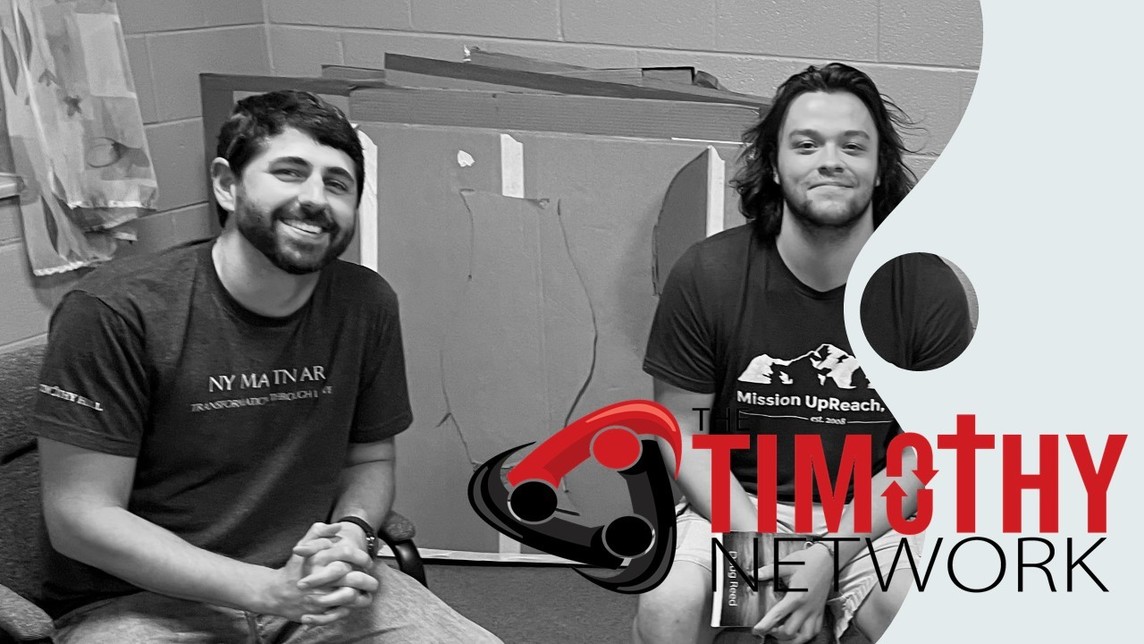For the first thirty years of my life, few people were better at wearing a mask than yours truly. “Guarded” described me to a tee. It was a loving wife and a life-changing discipling relationship that finally helped bring the down the walls. That’s just part of my testimony, but it’s pertinent to what follows.
Authentic intimacy is built into the fabric of what The Timothy Network was born to be. It’s what finally brought me out of hiding, and I’ve seen authentic discipling relationships do the same for many, many others. Although it’s scary to let people see the inner self, to love and be loved requires vulnerability; it’s the “stuff” of healthy relationships.
Deep down, all of us want to be known, authentically loved, and understood for who we are – not some fake image of what we think people expect. Doing so requires letting our guard down, however. Millennials seem to better understand this than past generations. Broadly speaking, there’s also an encouraging awakening in the body of Christ that “being real” makes us more winsome and relatable than efforts to hide our flaws.
It will take you about 10 minutes but if managing your image leaves you drained and ready to “ditch the mask,” please read on. Learning to experience the total sufficiency of God’s love and allowing others to see (and know) the “real” you will improve your effectiveess as a disciplemaker.
Thanks,
Mike Stroud

The following is a report on the practical applications of Dr. Juli Slattery’s book, Beyond the Masquerade: Unveiling the Authentic You, (Tyndale House Publishers, 2007). From Crosswalk. * Timothy Network was granted permission to reprint this information by Dr. Slattery’s Ministry, “Authentic Intimacy” (authenticintimacy.com).
If you’re in a hurry, you may not worry about leaving the house wearing a stained shirt or mismatched socks, without brushing your hair or putting on makeup. But what if other people could see beyond your physical appearance and look at your insecurities, pride, shame, or malicious thoughts?
Those are the kinds of things our society urges you to cover up. After a while, you create masks to hide your true thoughts and feelings and present an image you hope will prove your worth. The longer you wear your masks, the more comfortable they feel. But you can’t enjoy healthy relationships unless you remove the masks and show others who you really are.
Here’s how you can take off the masks you present to the world and be authentic:
Realize the price of the masks you wear. Understand that your masks prevent you from experiencing intimacy with God. Rather than trying to impress God, pursue an honest and intimate relationship with Him while relying on His strength. Know that your masks prevent you from pleasing God. Instead of vying for other people’s approval and praise, live to please God alone – no matter what others think of you. Shift your focus from establishing your identity on earth to becoming a disciple of Jesus.
Understand that your mask prevents you from experiencing intimacy in relationships. Rather than trying to prove your value to other people, seek to simply connect with them.
Ask deep questions. Don’t be afraid to honestly ask yourself deep questions about your existence, worth, emotions, thoughts, and purpose. Stop living according to the status quo and consider what changes you need to make to become more authentic with God, yourself, and other people.
Embrace the biblical view of self-esteem. Base your self-esteem on God’s love for you instead of just your own love for yourself, and on unchanging biblical truth rather than other people’s changing opinions of you in different circumstances.
 Discover your purpose. Acknowledge that you can’t create value apart from God; He empowers you to do absolutely everything, and even your next breath is a gift from Him. So instead of trying to create your own feelings of self worth, discover the purposes God has for your life. Remember that God has made you in His own image, so you’re valuable for who you are, not what you do. Know that God loves you completely and unconditionally; you can neither earn nor lose His love.
Discover your purpose. Acknowledge that you can’t create value apart from God; He empowers you to do absolutely everything, and even your next breath is a gift from Him. So instead of trying to create your own feelings of self worth, discover the purposes God has for your life. Remember that God has made you in His own image, so you’re valuable for who you are, not what you do. Know that God loves you completely and unconditionally; you can neither earn nor lose His love.
Ask God to make His purposes for your life clear, and to help you fulfill them well. Expect that when you’re pursuing God’s purposes for you, you’ll be free of the need to achieve, impress, and compete.
Trade lies for the truth about yourself. Take an honest look at yourself in light of these biblical truths:
You’re sinful and are powerless to stop sinning on your own, so you need to rely on God’s power;
You’re not in control of your life, but God is;
The world doesn’t revolve around you, and you’re one small part in God’s great story;
All your strengths are from God, so you can’t take credit for them and should use them to serve and glorify God; and
Your weaknesses are greater than your strengths, because your weaknesses cause you to depend on God’s greater power.
Instead of just trying to feel good about yourself, seek to experience the reality of God’s goodness to you. Let the awareness of your brokenness lead you to the wholeness you can only find in Christ.
Find real confidence. Rather than basing your confidence on how smart, beautiful, successful, talented, or charming you are, base it on what that will never change – God’s love for you and His power to work through you. Stop pretending to be someone you’re not to try to feel more confident; pretending will only lead to deeper insecurity. Accept the truth about yourself, tell the truth, and live in that truth.
Place your confidence in God by taking the risks you sense Him leading you take – even risks so big that you surely would fail without Him. Be willing to relinquish everything that keeps you placing your confidence in yourself (accomplishments, knowledge, family, personality, appearance, relationships, possessions, education, status, etc.) so you can place your confidence completely in God.
Humble yourself. Understand that humility actually frees you from the bondage of either inferiority or pride because it frees you from a preoccupation with yourself. Pray for the strength to become humble. Don’t demand your way even when it’s your right to do so. Be gracious to people who offend you and be willing to say “I’m sorry” when you offend others. Choose to see other people with the same value that you give yourself, remembering that only God’s grace prevents you from being the worst of sinners.
Ask God to help you see Him more clearly, and expect that as you grow in your knowledge of how wonderful God is, you’ll be humbled by how much you need Him. Instead of searching desperately to figure yourself out, channel your passion into understanding more about God, who made you in His image. Realize that you please God most not by trying to make yourself good, but by throwing yourself into His arms with all your flaws, believing that He understands everything and still loves you.
Pursue transformed relationships. Let go of your concerns about how other people make you feel. Don’t worry about being affirmed, being right, demanding respect, judging others, keeping score, harboring bitterness, competing, gossiping, or bickering. Be more interested in genuinely connecting with others rather than impressing them or saving face. Speak the truth in all your relationships. Admit your mistakes and ask for forgiveness. Lay aside your personal agendas to invite God to transform your relationships.
Do your work well. Don’t disengage with your work, viewing it just as a job that you have to do, but don’t really want to do well. Don’t be so driven that you try to prove your worth by working hard. Instead, do whatever work you do – from changing diapers or answering phones to inventing a product or speaking to crowds – with your very best effort, remembering that absolutely everything you do has eternal consequences. Look at every task you undertake as an opportunity to serve God through your attitude. Instead of working just for a paycheck or praise from other people, work to honor God.






Leave A Comment